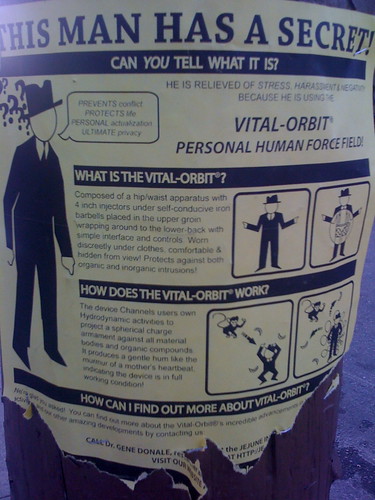Skepticblog
About Kirsten Sanford

Dr. Kirsten Sanford holds a PhD in Physiology from UC Davis and would rather be known for her intelligence than her Sexy Geek nomination from Wired magazine's 2007 contest. Dr. Sanford has a fanatical drive to popularize science, which lead her to produce and host This Week in Science a radio program turned lively podcast that educates the layman in recent scientific endeavors. Dr. Sanford, brainy and bright also holds a black belt in Tae-Kwon-Do, hula hoops with fire and is fascinated by birds and their brains.
RSS feed for this authorwww.kirstensanford.com
www.twis.org
Subjects
aliens alternative medicine atheism autism belief bigfoot Brian Dunning CAM Carl Sagan climate change conspiracy theories Creation creationism critical thinking cryptozoology denialism dinosaurs Dr. Kiki earthquakes economics education environment ethics evolution fossils geology Ghost Hunting ghosts global warming God homeopathy intelligent design james randi journalism media medicine michael shermer morality nasa paleontology paranormal politics pseudoscience Psychics psychology religion science science denialism scope SETI Shermer skeptical history skepticism skeptoid Skeptologists TV ufo ufos vaccines videoRecent Comments
- Daniel Loxton commented on A Fond Farewell to Skepticblog at 1:25 pm, September 18, 2014
- markx commented on A Fond Farewell to Skepticblog at 8:52 pm, September 17, 2014
- Thomas commented on False Equivalence at 11:44 am, September 15, 2014
- John Greg commented on A Fond Farewell to Skepticblog at 2:10 pm, September 13, 2014
- tmac57 commented on A Fond Farewell to Skepticblog at 10:39 am, September 13, 2014
Read posts by author:
How Smart Are Birds?
Some of them are fairly dumb. Some of them are fairly smart. It really all depends on the bird and the situation. However, for years scientists looked down on the bird as a minor player in the cognition game.
In a recent study of cognition involving rooks, a type of corvid related to crows and ravens, scientists (one of whom I worked with once upon a time) succeeded in recreating one of Aesop’s fables. From the abstract:
comments (22)In Aesop’s fable
The Crow and the Pitcher,
a thirsty crow uses stones to raise the level of water in a pitcher and quench its thirst. A number of corvids have been found to use tools in the wild [1,2,3,4], and New Caledonian crows appear to understand the functional properties of tools and solve complex physical problems via causal and analogical reasoning [5,6,7,8,9,10,11]. The rook, another member of the corvid family that does not appear to use tools in the wild, also appears able to solve non-tool-related problems via similar reasoning [12]. Here, we present evidence that captive rooks are also able to solve a complex problem by using tools. We presented four captive rooks with a problem analogous to Aesop’s fable: raising the level of water so that a floating worm moved into reach. All four subjects solved the problem with an appreciation of precisely how many stones were needed. Three subjects also rapidly learned to use large stones over small ones, and that sawdust cannot be manipulated in the same manner as water. This behavior demonstrates a flexible ability to use tools, a finding with implications for the evolution of tool use and cognition in animals.
Making Life A Game
Last week my friend sent me a picture of a flyer he had seen on the street. It didn’t seem like much at first glance — just some hokum woo — but, on further investigation (because of course you have to investigate hokum woo!) it opened up a whole world of intrigue.
The flyer was for the ‘Vital Orbit™’ Personal Human Force Field.

Personal Human Force Field - note that all the contact tags have been removed
Fostering Communication Outside the Conference Box
I didn’t go to TAM this year. In fact, I’ve never been. Not that I didn’t want to attend, but I’ve recently made it a rule to only attend conferences where I have been invited to speak. Makes it much easier on my pocketbook, and I don’t end up regretting my decisions to not attend any of the bazillion conferences I could attend each year. But, why do I bring this up… the conference?
Conferences are a brilliant way to bring people together in order to foster communication. Certainly, if you are attending a conference, you are most likely interested in the topics to be covered. But, there is always the session that you didn’t expect to be interesting that turns out to be thought-provoking. Not to mention the mixers where you most certainly bump into people of all types, and have conversations you could never expect. The environment (or, it might be the alcohol) pushes people out of their shells, making them more social than normal, more interested than normal, and allowing maximum information transfer to take place.
How can the conference vibe be transferred elsewhere? How can we get people out of their mental caves and interested in communication… or, even learning, dare I say it?
comments (18)Is Homeopathy So Bad?
This video is a brilliant piss-take on holistic healing. We are quite lucky the Brits evolved such a fantastic, dry wit. This kind of programming would never make it on US television for fear of offending an advertiser. Found via Boing-boing and Cory Doctorow.
That Mitchell and Webb Look: Homeopathic A&E
Because I Said So
People believe the strangest things. Usually it’s because they learned it as a child, and never stopped to question the validity of the belief.
When that belief is questioned by someone else it can be perceived as an attack not only on their intelligence, but also on the people from whom they first learned the information in question. Questioning beliefs picks away at the mentors and heroes from a person’s upbringing. (continue reading…)
comments (86)Puppets Like Skepticism, Too
This week I was interviewed by Farrah, a puppet on the Hoggworks Studios video podcast called The Rant Puppets. He asked me about bird smarts, critical thinking, crystals, PZ Myers, and chiropractic medicine. I liked his hair. Enjoy…
comments (8)Hogging the Conspiracies
It is amazing. With each new media snowstorm comes a new conspiracy theory.
From the Huffington Post:
comments (18)Who Do Science Festivals Reach?
I’m sitting here looking at two websites side-by-side. One is for the San Diego Science Festival, the other is for the World Science Festival, which takes place in New York City. I’m struck by how differently the two festivals approach the idea of a festival, and that they appear to have completely different audiences in mind.
Is it good that they use different approaches? Does it benefit the reach of science? I guess I’m wondering who they really end up reaching and how that benefits science literacy and understanding, especially among the uninitiated?
So, let’s compare… (continue reading…)
comments (8)A Crime So Monstrous
This is the title of a new book by E. Benjamin Skinner, who I had the great pleasure of meeting last week at the Conference on World Affairs.
I know that I normally keep myself to posts about science, reason, or media. However, there are things taking place in this world that are worth talking about aside from how I feel science is being presented to the public or what silly thing Jenny McCarthy said this week.
Worldwide, there are more slaves today than at any point in human history. But as a percentage of world population, there are fewer now than ever before. Within a generation, we can wipe the crime from the face of the earth.
I honestly believe that if we can’t learn how to treat humans as humans, and get rid of this kind of mistreatment around the globe, nothing we do academically will matter. I know that money makes the world go round, but it also leads to all sorts of horrendous acts in the name of profit.
How much of our world depends on the labors of uncompensated individuals? How much of this kind of activity bleeds over into American life? How much of it happens on American soil?
We should care that it happens anywhere, not just here. So, abolitionists like Ben are working to understand the problem, spread the word, and give to free the slaves.
You can support two organizations, Free the Slaves and Anti-Slavery International, by purchasing Ben’s book. Or, you can just give to the groups by following the links.
comments (31)Hosted by Skeptic magazine. For website-related matters, contact the webmaster.
This Sunday before game-time you might want to set your Tivos to record Dateline. This week, supposedly, Matt Lauer interviews Dr. Andrew Wakefield and several other affiliates of the Thoughtful House Center for Children, along with Dr. Paul Offit and journalist Brian Deer.
The Thoughtful House agreed to the interviews because they figured they would get fair treatment from the likes of Matt. I’m interested to see what kind of a program NBC has put together on this very sensitive subject.
Depending on how this major media outlet writes the script, it could either be a major affirmation of what many within the science community already know, or it could increase the divide between anti-vax’ers and science.
Please, Matt… don’t go Jenny McCarthy on us. Don’t do the usual journalistic job of being “fair-and-balanced”. This is not a “he said, she said” issue. This is science. Do tell the world what the science supports.
comments (179)